Batteries
LG Energy, SK On to delay battery JVs with Ford as demand slows
The move comes as EV makers and battery materials suppliers are slashing or delaying their investments
By Nov 07, 2023 (Gmt+09:00)
4
Min read
Most Read
LG Chem to sell water filter business to Glenwood PE for $692 million


Kyobo Life poised to buy Japan’s SBI Group-owned savings bank


KT&G eyes overseas M&A after rejecting activist fund's offer


StockX in merger talks with Naver’s online reseller Kream


Mirae Asset to be named Korea Post’s core real estate fund operator


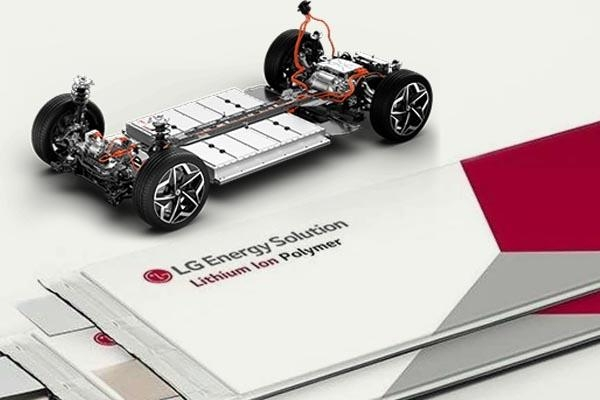
South Korea’s leading battery makers are postponing their plans to start operations of their joint ventures with Ford Motor Co. as the growth of the global electric vehicle market shows signs of slowing.
LG Energy Solution Ltd., Korea’s top battery maker, is considering delaying the ground-breaking of its joint venture with Ford and Turkish investment holding company KOC Holding AS – a plan that was supposed to start by the end of this year, people familiar with the matter said on Tuesday.
The three companies in February signed an initial agreement on the JV to produce battery cells for electric commercial vehicles in Baskent, near Ankara.
The partners said at the time they will break ground on the JV factory later this year to start production in 2026.
“Given Ford’s recent decision to cut EV investments, the industry slowdown and local circumstances, there is little incentive for the stakeholders to proceed quickly,” said one of the sources.
Regarding its Turkish JV with Ford, an LG Energy official said: “Nothing has been decided concerning the construction site and the ground-breaking timing.”
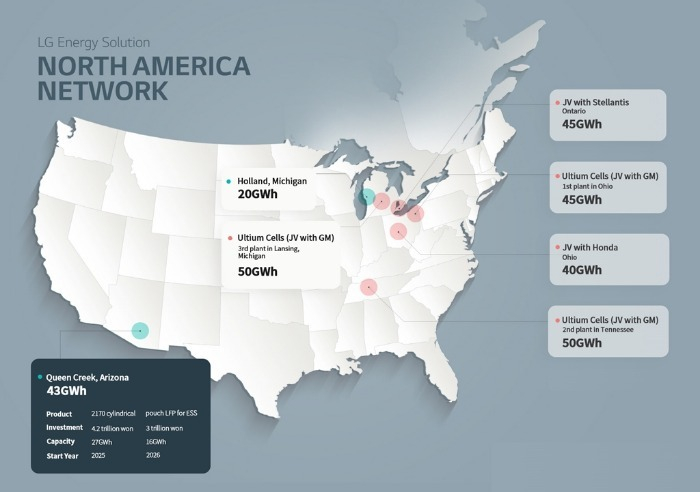
Separately, LG Energy’s wholly owned battery factory in Poland plans to lower its operation rates in line with its partner Volkswagen’s downward adjustments of its EV production volume, sources said.
FORD-SK JV ALSO DELAYED
Ford is also delaying the start of the second plant of its JV in Kentucky with another Korean battery maker, SK On Co., from the originally planned year of 2026.
Last December, SK On and its US partner Ford said they broke ground on their multi-billion-dollar battery JV, BlueOval SK, in Glendale, Kentucky to support the US auto giant’s rollout of its electric cars, including the Ford F-150 Lightning pickup.
Once completed, plants 1 and 2 with a combined annual production capacity of 86 gigawatt-hours (GWh) would produce lithium-ion batteries largely for electric Ford and Lincoln vehicles, SK said at the time.
The JV is part of the $11.4 billion investment the two companies announced in 2021 to build two EV battery manufacturing facilities in Kentucky and another in Tennessee, BlueOval City.
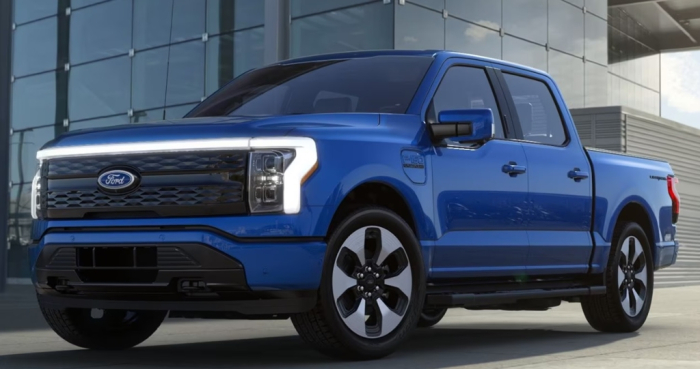
TIME FOR A BREATHER
Korean battery makers’ moves to postpone their battery JV projects come as global EV makers, including Ford and Volkswagen, are delaying their investment plans while they remain committed to electrification.
A Ford spokesman recently said EV sales are growing everywhere but “the pace of adoption is slower than what folks in the industry, including Ford, originally expected.”
Industry officials said LG Energy, which spent 7.6 trillion won ($5.8 billion) in facility investment in the first nine months of this year – higher than last year’s full-year spending of 6. 3 trillion won – will feel burdened to spend more at a time when EV makers are cutting down on their investment plans.
SK On, which is losing money from its battery business, spent 4.8 trillion won on facility expansion in the first half – the largest among Korea’s three battery makers, including Samsung SDI Co.
"I don't see the current situation as negative because it allows us to make the necessary preparations while taking a breather,” said SK On President Jee Dong-seob.
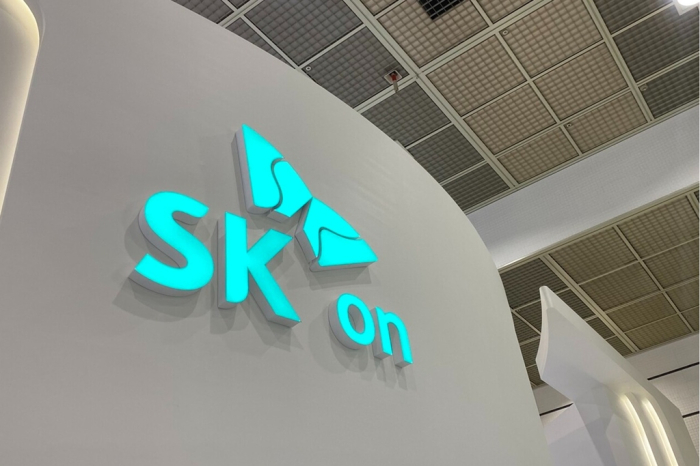
SK On said in January it was scrapping a plan to build a 4 trillion won battery JV with US carmaker Ford in Turkey, citing higher interest rates and borrowing costs.
BATTERY MATERIALS MAKERS ALSO TAKE A BREATHER
Battery materials makers in Korea are also adjusting their investment plans.
Korea Zinc Co., the world’s largest zinc and lead smelter, recently said it is delaying mass production of copper foil, a battery material, until the first half of next year from its original plan to start plant operations in the third quarter of this year.
The company said in July that it would likely start supplying copper foil to LG Energy in October.
A copper foil is a thin foil that surrounds the anode, the negative end of a lithium-ion battery. High-strength copper foils are essential to making safer, high-density rechargeable batteries.
Korea Zinc has also suspended a plan to build a waste battery recycling factory in the US by the end of this year.
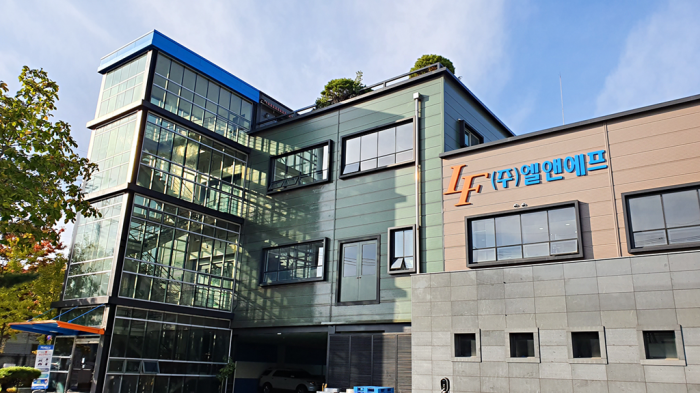
In July 2022, the company acquired a majority stake in Igneo Holdings LLC, a US-based electronic waste recycling firm, for $332 million to expand its footprint in the battery materials market.
L&F Co., which counts Tesla Inc. among its major clients, said it is postponing a planned ramp-up of its cathode plants while reducing the size of its facilities for the anode, precursors and lithium iron phosphate (LFP) materials.
L&F earlier said it aims to expand its cathode production capacity to at least 400,000 tons a year by 2026.
EcoPro BM Co. said at its earnings conference call on Tuesday that it is slashing its 2023 facility investment by 10% to 1.2 trillion won, citing an industry view that capacity will exceed demand for at least three years.
According to Samsung Securities Co., global cathode material supply is expected to exceed demand by 147% in 2024, 146% in 2025 and 141% in 2026.
Write to Nan-Sae Bin and Mi-Sun Kang at binthere@hankyung.com
In-Soo Nam edited this article.
More to Read
-
 Electric vehiclesSK On signs deal to supply NCM battery cells to Sweden’s Polestar 5 EV
Electric vehiclesSK On signs deal to supply NCM battery cells to Sweden’s Polestar 5 EVNov 06, 2023 (Gmt+09:00)
3 Min read -
 BatteriesKorea Zinc likely to supply copper foil to LG Energy for EV batteries
BatteriesKorea Zinc likely to supply copper foil to LG Energy for EV batteriesJul 17, 2023 (Gmt+09:00)
3 Min read -
 BatteriesFord, LG Energy to build Turkey EV battery plant for Europe
BatteriesFord, LG Energy to build Turkey EV battery plant for EuropeFeb 22, 2023 (Gmt+09:00)
2 Min read -
 BatteriesSK On-Ford Motor EV battery joint venture breaks ground in Kentucky
BatteriesSK On-Ford Motor EV battery joint venture breaks ground in KentuckyDec 06, 2022 (Gmt+09:00)
3 Min read -
 BatteriesFord CEO heads to Korea to discuss EV tax credit with LG Energy, SK On
BatteriesFord CEO heads to Korea to discuss EV tax credit with LG Energy, SK OnSep 16, 2022 (Gmt+09:00)
3 Min read
Comment 0
LOG IN


